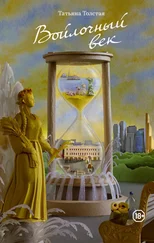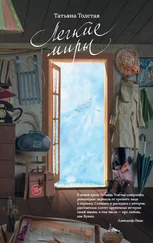In one of the shops, by the back wall, he saw a sculpture. White, marble, the height of a woman. Judith with the Sword.
And he was gone.
Undoubtedly he had heard of Pygmalion, who carved Galatea and fell in love with her; they used to teach it in school back then. A standard sampling of romantic myths was offered—harmless and thus available to the Soviet citizen: Orpheus and Eurydice for the young; the faithful Penelope awaiting her husband’s return for women of Balzac age; and Pygmalion: My Fair Lady —who doesn’t know that one?
But it is one thing to know, and quite another to fall in love with a marble statue till death do you part. And when I say till death, I truly mean it.
The artist asked: How much? “This much.” He haggled, but it was still too expensive—he didn’t have enough; he dispatched a telegram to his wife: Send more. In a tizzy, she ran around borrowing from friends and neighbors: must be mahogany, must have curlicues and bronze inlay!
He bought his beloved, paying for her an outrageous sum; he barely had enough for the movers and his ticket back home. Judith was wrapped up in rags, but the movers were Soviet, drunk, unqualified; while they were dragging her along the train platform and shoving her into the train car, the tip of her sword broke off.
He dragged her home by himself, to the second floor, I believe.
Imagine, you’re the wife, you’re expecting your husband with a magnificent master bedroom set, including the nightstands—sacral objects, as it were. Mentally you are already luxuriating, stretching out on the bed, young and libidinous once again. And then he tumbles in through the door—with another woman. So what if she’s made of marble? That’s even worse.
The wife—writes Maria V., if you still remember her—ran out on him in a hurry, with kids in tow. They haven’t seen her in Ryazan since. And we—continues Maria—finally managed to get an invitation to come visit him. Brought a cake, the kind with green cream roses. Surprisingly tasty! He put the kettle on. He’s a lovely man, very polite. He has interesting paintings. Lives alone. And her —writes Maria V. in holy awe—we saw her, too. She stands by the wall—white, her gaze averted, hair parted neatly and pulled back into a bun. The tip of her sword is missing. The apartment is nice and clean—goes on Maria V.—but under the wardrobe I saw a strange gray rug, which I bent down to examine closer: it was dust. He must have not dusted under there for eight years! Otherwise he’s perfectly normal.
So that was the letter. And all of it has been left behind the barrier of time, all of it must be gone by now: Maria Vasilievna, the artist, that world.
There is only love, unexpected and inexplicable, and it’s always the same story: embarrassing, pointless, down to the last penny. And silent.
Stay silent, but stay.
“You do understand, don’t you, that from this moment on, all the rights as well as all responsibilities and liabilities associated with this property will become yours,” the lawyer patiently repeated. “This will no longer be David and Barbara’s responsibility, it will be yours.”
David and Barbara were watching me sullenly, without blinking. In my hand was a pen with black ink, and all I had to do was imprint the purchase agreement with one last signature. David and Barbara were getting a divorce and selling their Princeton, New Jersey, home. I was the buyer. And we were all sitting in a lawyer’s office. A heavy American downpour raged outside, the weather bearing similarity to that of the flood of Saint Petersburg in 1824; it was coming down with a particular kind of vengeance, you couldn’t see more than thirty feet ahead of you—there was just a wall of rain—and what you could see inspired consternation: the furious waters had already climbed halfway up the tires of the cars parked outside and were rising as fast as a second hand sweeps the face of a clock.
“Yeah, we may see some flooding,” the lawyer said indifferently, following my gaze. “In New Jersey, thousands of cars wind up at used car lots after a downpour like this. But I wouldn’t recommend buying one. They’re all lemons. However, that’s entirely up to you.”
“What about the house?” I asked. “Might the house get flooded?”
“The house sits on a hill,” David interjected, fidgeting. “The neighbors do get flooded, but not us, so far—”
“Mister P., please!” came a strict reminder from counsel.
This lawyer forbade David from speaking to me and me to him. Perhaps he feared that David would let something slip, possibly exposing the hidden flaws of the house, whereupon I’d gasp, and the sale price would immediately plummet. David would suffer a loss. Or—just as now—he would ply me with false promises, like the one about the hill allegedly ensuring the safety of the property, and I’d believe him, only later to walk into the house and find water undulating in the basement. This would mean that David had lied to me in the presence of two attorneys and so I would file a lawsuit, there would be litigation with no end in sight. No, according to the playbook, David was supposed to be cold, reserved, and neutral. Courteous but distant.
But this David? This David could scarcely hide how tickled he was that somebody wanted to buy his pitiful—at least by American standards—dwelling: a long gray unfinished barn with a leaky roof, tucked away in the back of an overgrown plot in an unprestigious rural corner. The address may have said Princeton, but really it was Bumblefuck, New Jersey—dense forest, a rutted road leading toward neglected, dilapidated structures. At the end of the road was a shack I would come to call “the End of All Paths”: boarded up, broken windows, decayed to the color of ash, it would have collapsed long ago if not for two dozen thin but sturdy young trees that pierced it like spears and improbably, impossibly, un-fucking-believably held it upright.
David was simple and honest, so very simple and honest that his eyes would bulge from the fear that he might cheat me or hoodwink me, even by accident. He showed me where the floor was rotted in the kitchen: the linoleum was so worn it had holes in it, having gone unchanged for thirty years. But the wood underneath was still holding up. He proposed that we both get on all fours to look under some cabinet, where a big chunk of the floor was missing. He’d yank at the window frames by the latches now formless from all the coats of paint—“Look, these are no good! They’ll need to be changed!” He thoroughly described where the roof leaked, where I’d be obliged to put buckets when it poured. He told me about the patio fiasco. That is, David didn’t have a patio—it existed only in his dreams. “Go see for yourself.” After banging his hip against it several times, he was able to open the swollen, warped plywood door that lurked in the back of this squalid abode—and there… a most magical room!
You take but a step and escape the semi-dark, narrow, low-ceilinged pencil box of a house for this airy sunroom, suspended just a bit aboveground. On both the left side and the right were floor-to-ceiling windows overlooking lush gardens where little red birds fluttered, and something in bloom entwined in the trees swayed in the wind.
“You see, I had the door and window frames made by a great craftsman—he has a two-year waiting list,” said David apologetically. “I ended up spending a lot of money. Maybe two grand. Or two and a half. Didn’t have anything left for the patio.”
He pulled at the sliding glass door—transparent and patterned, like the wing of a dragonfly—and the whole thing moved to the side. Beyond the threshold there was a green abyss, and a little beyond that, a lone pine tree. Beneath that tree, a latticework of sun rays on a carpet of last year’s needles, through which had sprouted lilies of the valley, their gaze shy and averted. My heart skipped a beat.
Читать дальше






